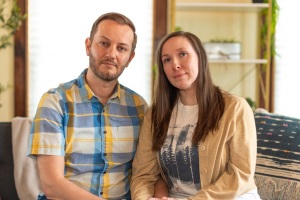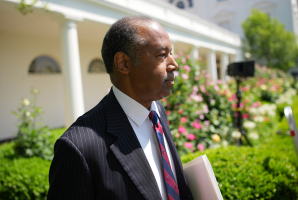Study: Religiosity of Humanities Students Most Likely to Wane
Results from a recent study on the impact of a college student's major on their religiosity have led researchers to conclude that postmodernism, rather than science, is the greatest antagonist of religiosity.
Researchers at the University of Michigan-Ann Arbor drew the conclusion after finding that majoring in Humanities or Social Sciences has a significant negative effect on religious attendance and self-assessed importance of religion in one's life.
"Because we consider both the Humanities and many of the Social Sciences particularly strongly imbued with Postmodernism, we take this as evidence for a negative effect of Postmodernism on religiosity," they state in their report, which was released last month.
Meanwhile, majoring in the Biological Sciences and the Physical Sciences has a much smaller negative or no effects on religiosity.
"My coauthors Colter Mitchell, Arland Thornton, Linda Young-DeMarco and I speculate that Postmodernism (Relativism) has a much bigger negative effect on religiosity than Science because the key ideas of Postmodernism are newer than the key scientific ideas that challenge religion. Religions have had 150 years to develop resistance or tolerance for the ideas of evolution, for example," said economist Miles Kimball, who co-authored the study.
In the study, postmodernism is defined as a commitment to relativism and to the idea that truth and morality are not absolute but are determined by those who are powerful. It is associated with "epistemological doubt" or the idea that knowledge and certainty are extremely difficult to attain. This conflicts with religious beliefs suggesting the existence of absolute knowledge, truth, and authority rooted in God's revelation and teachings to human beings.
"Most religions have not gotten as far at developing resistance or tolerance for the ideas of Postmodernism, though one can see it happening, as some religions warn their member about Relativism, while others argue that Postmodernism means that religious belief cannot be disproved," Kimball noted.
The new study, "Empirics on the Origins of Preferences: The Case of College Major and Religiosity," is based on data that has been collected by researchers at the University of Michigan since 1975. Each year about 16,000 students in approximately 133 public and private high schools nationwide are interviewed during their senior year of high school and a randomly-selected sample from each senior class is followed up bi-annually after high school.
Researchers set out to examine how exposure to specific contents of a curriculum affects students' values, on the basis that college majors exhibit important correlations with values and worldviews.
Findings show that students who entered the Humanities were highly religious but they came out of the major less religious than they started.
Those who switched into the Social Sciences were on average less religious and maintained or strengthened their already low religiosity.
Majoring in the Biological Sciences and the Physical Sciences did not affect students' religious attendance but the Physical Sciences negatively affected the level importance of religion in their lives.
Surprisingly, majoring in education was found to increase religiosity both in terms of religious attendance and importance. Researchers also found a rise in religiosity for students in business.
Other findings show that students in the Sciences and Engineering experience large decreases in their trust in God compared to business majors. Those who are more ready to leave things to God are more likely to stay in the No College (never having attending college) and the Other/Undecided categories.



























